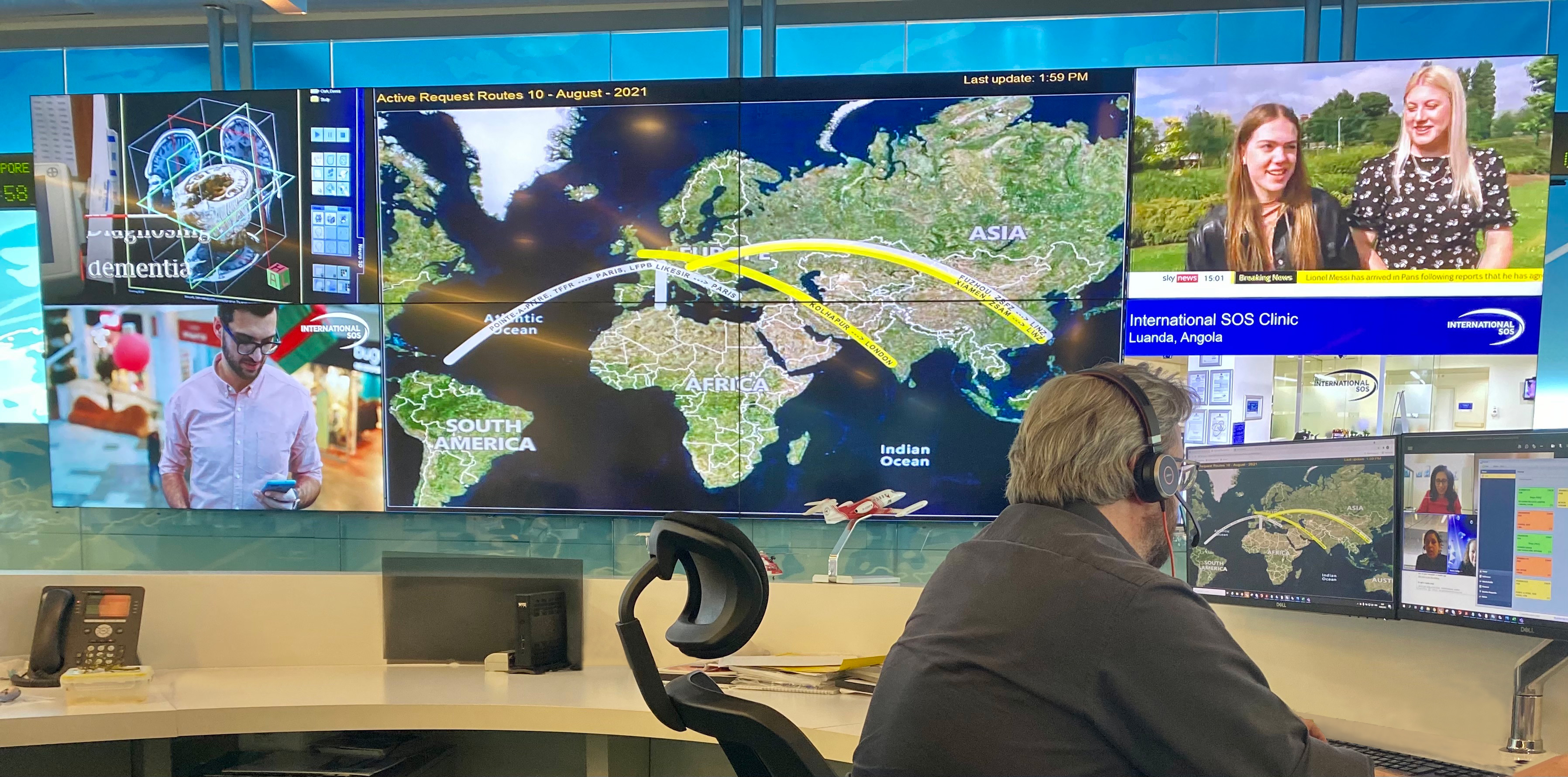TRAVEL SECURITY
At International SOS we focus on prevention, helped by innovative technology and our medical & security expertise. We offer real-time, actionable intelligence and on-the-ground high quality delivery. In the event of extreme weather, an epidemic or a security incident, we provide an immediate response providing peace of mind. More than 11,000 multi-cultural medical, security and logistics full-time experts stand by to provide support and assistance from over 1,000 locations in 90 countries, in more than 95 languages, giving you and your workforce peace of mind 24/7, every day of the year, be it online, on call or on-site.
Our security teams continuously monitor and alert on security risks; provide actionable advice and assistance 24/7 accessible via our 27 Assistance Centres; and standby to deploy in support of evacuations or security incidents. Our 13,000 multi-cultural security, medical, logistics and digital experts, alongside our global offices, Assistance Centres, clinics and remote sites, enable us to deliver actionable security information, analysis, and on-the-ground assistance.
 2 Aviation Security Centres: Phoenix, Dubai
2 Aviation Security Centres: Phoenix, Dubai
 12 Security Information, Analysis and Assistance Centres: Sydney, Singapore, Tokyo, Seoul, Delhi, Dubai, London, Paris, Frankfurt, Madrid, Philadelphia, Mexico City
12 Security Information, Analysis and Assistance Centres: Sydney, Singapore, Tokyo, Seoul, Delhi, Dubai, London, Paris, Frankfurt, Madrid, Philadelphia, Mexico City
 Centres of local security expertise include: Bangkok, Beijing, Bengaluru, Cairo, Copenhagen, Geneva, Hong Kong (SAR, China), Houston, Johannesburg, Los Angeles, Manila, Milan, Montreal, New York, Osaka, Shanghai, Washington DC
Centres of local security expertise include: Bangkok, Beijing, Bengaluru, Cairo, Copenhagen, Geneva, Hong Kong (SAR, China), Houston, Johannesburg, Los Angeles, Manila, Milan, Montreal, New York, Osaka, Shanghai, Washington DC

About International SOS
International SOS (https://www.internationalsos.com) is the world's leading medical and travel security risk services company. We care for clients across the globe, from more than 850 locations in 92 countries. Teams work night and day to protect our members. We pioneer a range of preventive programs strengthened by our in-country expertise. We deliver unrivalled emergency assistance during critical illness, accident or civil unrest. We are passionate about helping clients put 'Duty of Care' into practice. With us, multinational corporate clients, governments and NGOs can mitigate risks for their people working remotely or overseas.